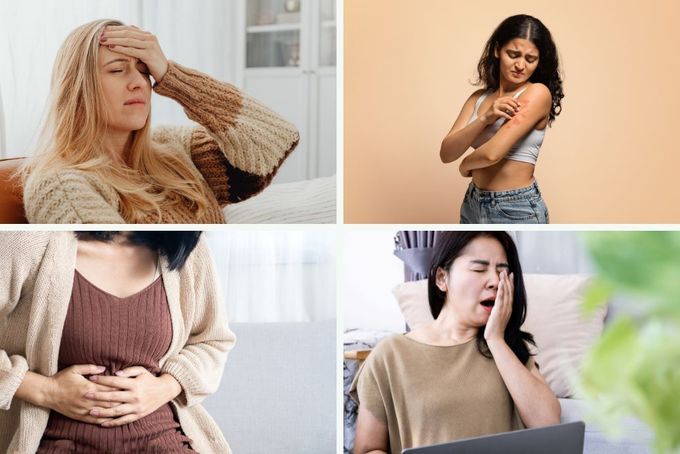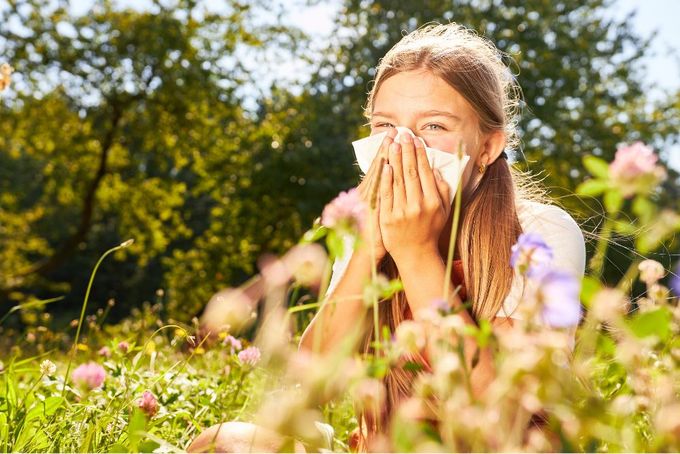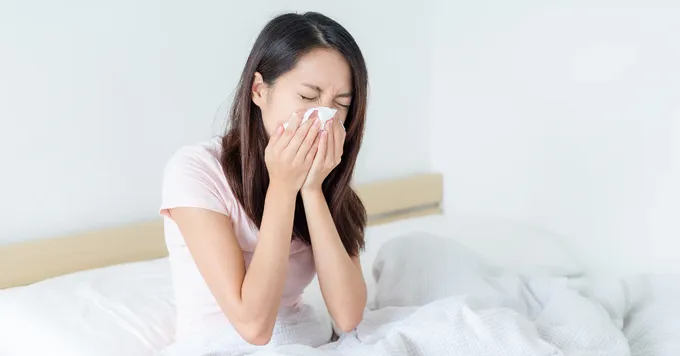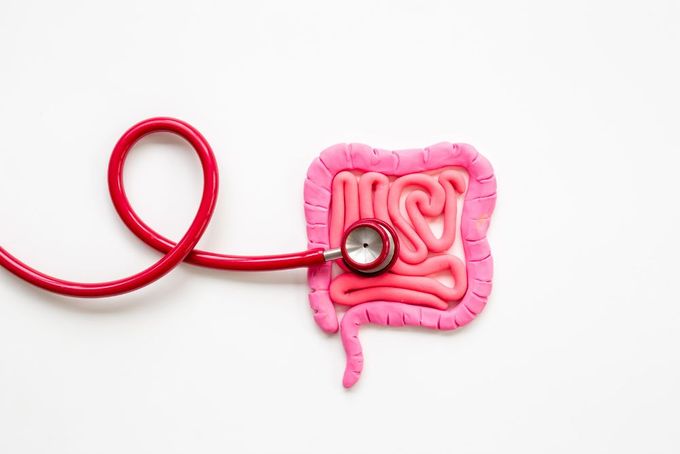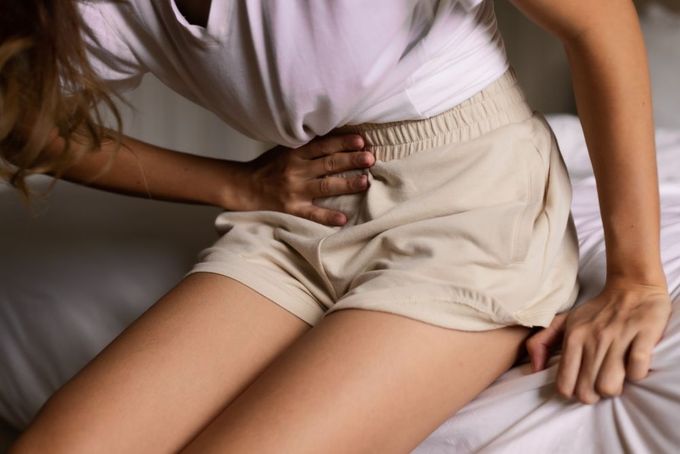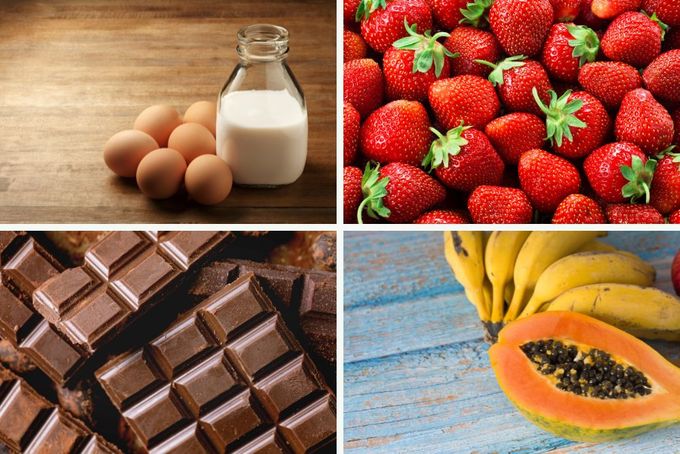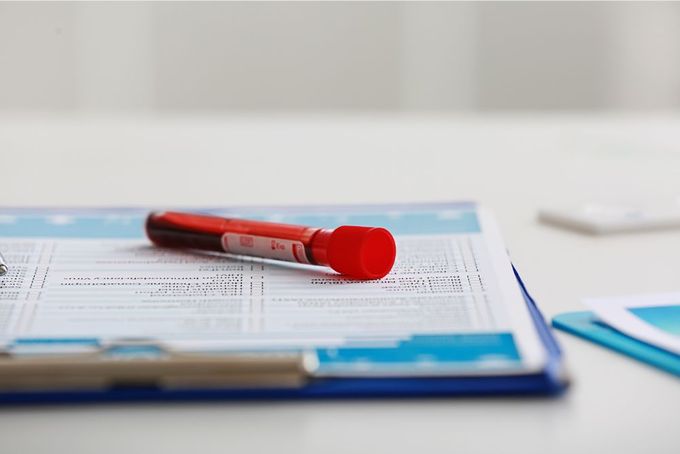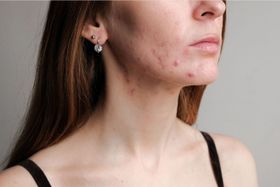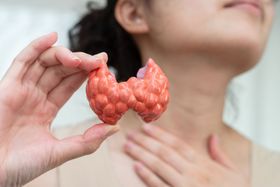What is the Connection Between Histamine, Estrogen, and PMS?
Updated January 20, 2026

For some of the clients at She Talks Health, getting their histamine under control is the biggest game changer when it comes to some of the most advanced PMS symptoms. Could this be the same for you?
What is Histamine and Histamine Intolerance?
Histamine is not a bad thing, but TOO much histamine is NOT fun. Too much histamine can be responsible for:
- Headaches
- Fatigue
- Bloating
- Itching
- Insomnia
- Irritability
- Gut issues
These symptoms usually occur around ovulation.
It’s important to remember though that histamine is actually there to help - when your body gets exposed to an allergen like dust or pollen it triggers histamine to thin out the red blood vessels to create a pathway for your immune system’s white blood cells to get to the problem area. This trigger (dust, pollen, etc) and the subsequent histamine response is what causes that itchy, puffy, swollen, swelling that is associated with allergies and allergy seasons. This is why an antihistamine, like Benadryl, is so popular.
When the body either creates too much histamine OR can’t clear it out, that’s what is known as a histamine intolerance.
What is Mast Cell Activation Syndrome?
Mast Cell Activation Syndrome, or MCAS for short, is a more serious or extreme version of histamine which can cause massive swelling. I have a fellow functional practitioner friend who has MCAS and when she is exposed to an allergen her entire face can swell up and she looks like someone inflated her with a balloon!
I don’t believe I have MCAS but before I knew better, I triggered my histamine response so badly that I ended up with 15 canker sores in my mouth! It was definitely one of the most painful experiences EVER!
What do your hormones have to do with histamine?
How, though, is histamine connected to our hormones? Let’s explore the estrogen-histamine connection.
Histamine is unfortunately unregulated by estrogen. This means the level of histamine is increased by estrogen. Estrogen peaks at ovulation, which is why many women with a histamine intolerance experience horrible symptoms at ovulation. Additionally, histamine release due to estrogen is released primarily in the uterus and the ovaries. To make matters even worse, there is a chicken and egg scenario where the more histamine you have the more estrogen you have and vice versa.
Additionally, estrogen down regulates (or decreases levels of) diamine oxidase (DAO), which is the enzyme that breaks down histamine.
What can I do about these levels?
Gut health is essential in supporting your body’s responses and your hormones. We know the trigger for most inappropriate histamine is linked back to this. The gut is also where the immune system is held.
This especially needs to be considered if you have endometriosis, acne, period pain, PMS, and/or heavy periods. Endometriotic lesions contain a high number of mast cells and that can contribute to pain and even the abnormal immune response at the core of endometriosis.
Mast cells (which release histamine) are also present in the uterus, as previously mentioned above. This means they could be involved in heavy periods by the release of heparin (this is a blood thinner) and blood thinners can increase menstrual flow.
Leaky gut and intestinal dysbiosis are key factors to addressing an over active immune system including histamine intolerance. For these reasons, we recommend doing a stool test as a key step and working with your practitioner to understand your results and treatment plan.
What else can I do?
You might be thinking, I don’t have the money right now to run a GI MAPS stool test – that’s okay, there are things you can do to bridge the gap in the meantime. One way is to remove histamine-containing and histamine-triggering foods from your plate and see if all your symptoms disappear!
To be clear, I don’t think removing all these foods is sustainable long term. But anyone with histamine intolerance can tell you it's utterly miserable to live with, so this can be a temporary stop gap until your gut heals. You may also decide you just want to reduce these foods around ovulation if you feel histamine is a cycle specific issue for you.
What foods contain histamine?
- Alcohol (especially beer and wine)
- Bone broth
- Fermented foods (pickles, smoked meats, sauerkraut)
- Cheese or dairy of any sort
- Cider
- Dried fruits such as apricots, dates, prunes, figs, raisons
- Canned fish like sardines and mackerel
- Smoked fish
- Processed Meats – sausage, hot dogs, salami
- Yogurt
- Soured breads, such as pumpernickel, coffee cakes and other foods made with large amounts of yeast
- Spinach
- Tomatoes
- Eggplant
- Mushrooms
- Avocado
- Vinegar or vinegar-containing foods, such as mayonnaise, salad dressing, ketchup, chili sauce, pickles, pickled beets, relishes, olives
Histamine-releasing foods
- Bananas
- Chocolate
- Eggs
- Fish
- Milk
- Papayas
- Pineapple
- Shellfish
- Strawberries
- Tomatoes
What supplements can help?
B6 helps the enzyme DAO, which is what breaks down histamine in the body. You can also supplement directly with DAO. Manufacturers have also created probiotics specifically designed to support your gut in breaking down histamine.
You should discuss any dietary changes or potential dietary supplement use with your practitioner.
Testing
Remember: test don’t guess. Getting a GI MAPS stool test and a DUTCH complete would be two factors to consider. The GI MAPS is a stool test that could determine any imbalances in the gut. Additionally, the GI MAPS has a marker called Beta Glucuonidase which tracks how well your gut is actually doing in releasing toxins and excess hormones.
